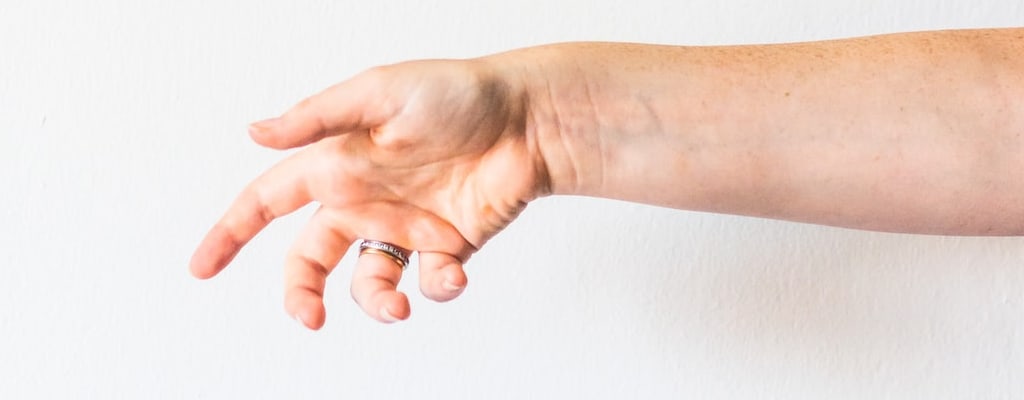back of one’s hand: Idiom Meaning and Origin
What does ‘back of one's hand’ mean?
The idiom "back of one's hand" means to be very familiar with something or someone, to the extent that it becomes almost automatic or subconscious.

Idiom Explorer
The idiom "old hand" refers to someone who is experienced or skilled in a particular activity or job.
The idiom "in one's back pocket" means to have complete control or influence over someone or something.
The idiom "eat out of someone's hand" means to be completely under someone's control or influence, obeying their every command without question.
The idiom "dry behind the ears" means someone is still young or inexperienced.
The idiom "down pat" means to have something well-practiced or fully mastered.
The idiom "cross someone's palm" means to pay someone for a service or to bribe someone, often involving the exchange of money placed in the person's hand.
The idiom "comfortable in one's own skin" means to be confident and at ease with oneself, without feeling the need to pretend or act differently to fit in or please others.
The idiom "cap in hand" refers to a person being in a humble or subservient position, usually due to seeking help or forgiveness from someone. It implies a sense of deference and submission.
The idiom "by the skin of one's teeth" means barely or narrowly avoiding something, often a dangerous or difficult situation.
Hidden Hand Secrets
The idiom "back of one's hand" is a commonly used phrase in the English language that indicates a deep familiarity or knowledge of something or someone. It can also convey a sense of contempt or disdain. The phrase is believed to have originated in the 16th century and is still in use today.
The literal meaning of the idiom refers to the back or palm of one's hand, which is a part of the body that people generally have a good understanding of. The idiom can be used in both formal and informal contexts and is understood by native English speakers.
When someone says they know something "like the back of their hand," it means they have a thorough understanding or are well-acquainted with the subject. It implies a level of expertise that goes beyond superficial knowledge. This idiom can also carry a negative connotation, indicating a lack of regard or indifference towards the person or thing being referred to.
The origin of the idiom can be traced back to the 16th century when it began to be used metaphorically. The back (or palm) of one's hand is a body part that is frequently seen and used in everyday tasks, making it innately familiar to most people. This familiarity likely contributed to the adoption of the idiom as a metaphorical expression for a deep understanding or knowledge.
The idiom "back of one's hand" is versatile and can be used in both formal and informal contexts. It can be employed in a variety of situations, from academic discussions to casual conversations. Native English speakers are familiar with the idiom and understand its intended meaning, ensuring effective communication.
In addition to the idiom "back of one's hand," there are several other related idioms that also convey a sense of familiarity or expertise. These idioms include "in one's back pocket," "old hand," "at one's fingertips," and "by heart."
The idiom "in one's back pocket" is used to describe someone who has complete control or mastery over a particular subject or situation. This idiom conveys a high level of familiarity and expertise, much like the idiom "back of one's hand."
The idiom "old hand" refers to someone who is very experienced or knowledgeable about a particular activity or field. This idiom suggests that the person has been doing something for a long time and has developed a deep understanding or familiarity with it, similar to the idiom "back of one's hand."
The idiom "at one's fingertips" is used to describe someone who has immediate access to information or resources and is very familiar with them. This idiom implies a level of expertise and familiarity similar to that conveyed by the idiom "back of one's hand."
The idiom "by heart" means to know something very well or to have memorized it. This idiom suggests a deep familiarity and understanding, much like the idiom "back of one's hand."
These idioms all share a common theme of familiarity, knowledge, and expertise, much like the idiom "back of one's hand." They are all used to convey a sense of deep understanding or familiarity with a subject or activity.
The idiom "back of one's hand" is a commonly used phrase in the English language that indicates a deep familiarity or knowledge of something or someone. It can also convey a sense of contempt or disdain. The idiom originated in the 16th century and is still in use today. It is used in both formal and informal contexts and is understood by native English speakers. Additionally, there are several related idioms, such as "in one's back pocket," "old hand," "at one's fingertips," and "by heart," that convey a similar sense of familiarity and expertise. These idioms all share a common theme and are used to convey a deep understanding or knowledge of a subject or activity.
Example usage
Analysis:
1. She turned away from him in anger, showing him the back of her hand.
2. The boss dismissed his employee with a wave of the back of his hand.
3. The politician brushed off the reporter's question with the back of his hand.
More "Familiarity" idioms



